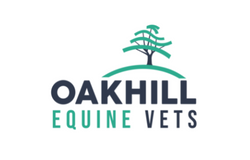Articles
Stay informed with our topical articles, all written by our equine vets.CASE STUDY: ELECTRICAL CARDIOVERSION (TVEC)
Tilly was seen by our vet Kai during a routine yard visit for her annual vaccination. During this visit it was noted that Tilly had a very irregular heart rhythm. Tilly was consequently bought to our clinic for further investigations including blood tests and an ECG to measure the electrical activity of the heart.
Read MoreEQUINE SPINAL PAIN UK SPECIALISTS
Is your horse displaying signs that could indicate that they have pain coming from the spine? This can be from the underlying bone structures, nerve pain or pain coming from the many muscles and ligaments which interact with the spinal column. This includes pain coming from the sacrum, pelvis and sacroiliac joints too!
Read MoreBOO’S FETLOCK INJURY AND LIFE-SAVING SURGERY
Several months ago equine vet Jess was called out to see one of the worst fetlock injuries we as a practice have ever seen. Poor ‘Boo’ had somehow managed to do this to herself in the field, causing such a deep wound to her left fore fetlock that the joint capsule was exposed leading to a septic joint. She had also damaged some of the supporting ligaments nearby.
Read MoreCHRONIC PROGRESSIVE LYMPHOEDEMA (CPL)
CPL is a condition which we are seeing with increasing frequency in our ‘hairy’ population – draft breeds, cobs and certain natives. It was only relatively recently (2003) recognised as a specific, stand-alone condition, and it is still not fully understood, but here is what we know so far.
Read MoreGREEN LEVEL INVESTORS IN THE ENVIRONMENT ACCREDITATION FOR OAKHILL VETS!
After a period of extensive reporting and planning, Oakhill had its second ‘Sustainability Audit’, and we are proud to announce that we achieved Green Level accreditation with an impressive score of 77%, skipping the Gold Level entirely!
Read MoreSTEM CELL BREAKTHROUGH IN EQUINE MEDICINE
Traditionally, stem cells have been used to treat tendon injuries, particularly in racehorses. These cells were usually harvested from the sternum of the injured horse and were expanded in a laboratory over 30 days for reimplantation into the site of the injury. The brilliant news is that we now have commercial stem cells available which we can buy in for appropriate cases.
Read More